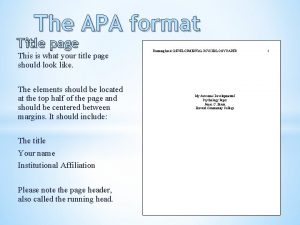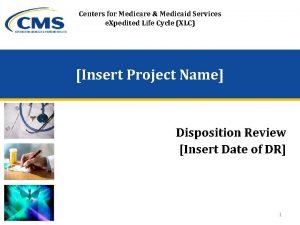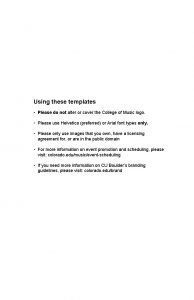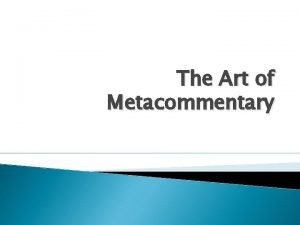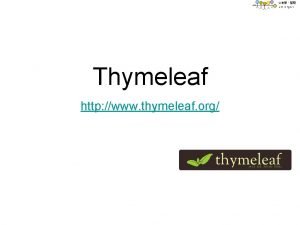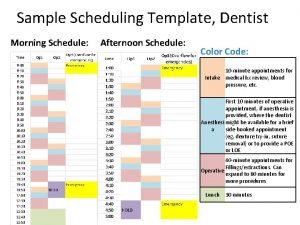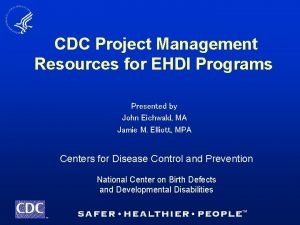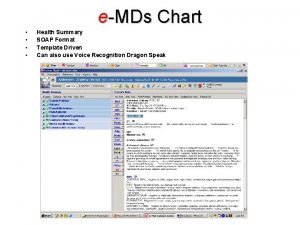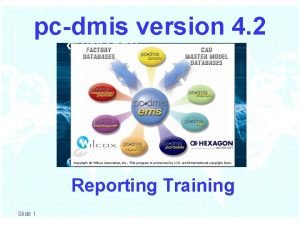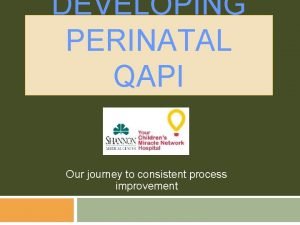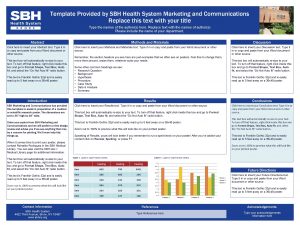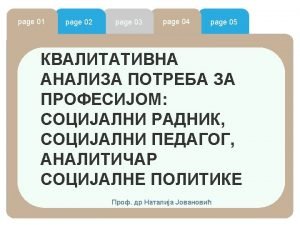Powerpoint Templates Powerpoint Templates Page 1 Powerpoint Templates









































































- Slides: 73

Powerpoint Templates ﺑﺴﻢ ﺍﻟﻠﻪ ﺍﻟﺮﺣﻤﻦ ﺍﻟﺮﺣیﻢ Powerpoint Templates Page 1

Powerpoint Templates Bordetella pertussis http: //www. hhmi. princeton. edu/sw/2002/psidelsk/Microlinks. htm Roxana M. Ghanaie Ped Infectious Disease Subspecialist Page 2

Bordetella pertussis Basics Powerpoint Templates • • Aerobic, Gram negative coccobacillus Alcaligenaceae Family Specific to Humans Colonizes the respiratory tract – Whooping Cough (Pertussis) Page 3

Bordetella pertussis Powerpoint Templates is a bacterium identified in 1900 by Jules Bordet and Octave Gengou but isolated only in 1906 because of the development of a medium containing potatoes extract and rabbit blood Jules Bordet 1870 -1961 Page 4

Why speaking about Pertussis? Powerpoint Templates • Iran pertussis incidence 2010 : 0. 5/ 100000 • DTP 3 coverage more than 95% Page 5

Estimated annual childhood deaths, Powerpoint Templates 2002 Meningococcal (< 1%) rotavirus (16%) pneumococcal (28%) 76% 24% measles (21%) Hib (15%) pertussis (11%) tetanus (8%) { yellow fever (1%) diphtheria (<1%) polio (< 1%) 10. 5 million deaths under 5 years of age 1. 4 million from diseases where vaccination is currently available 1. 1 million from diseases where vaccines will be available by 2008 Source: WHO/IVB Page 6

Powerpoint Templates Page 7

Classic Manifestation Powerpoint Templates • The incubation period of pertussis is usually 7 to 10 days, with a range of 4 to 21 days. • “The cough of 100 days”, China, The clinical course of illness is divided into three stages. ( age, vaccination, waning) • The catarrhal stage is characterized by the onset of runny nose, sneezing, low-grade fever, and a mild cough. Cough gradually becomes more severe (1 -2 weeks) Page 8

Classic Manifestation Powerpoint Templates • The paroxysmal stage is characterized by coughing fits (paroxysms), which may be followed by a high-pitched inspiratory whoop, vomiting, and/or apnea. (1 -6 weeks), but may continue for 10 weeks • The convalescent stage is characterized by fewer paroxysmal coughing episodes and usually disappears in 2 -3 weeks, but may continue for months. Page 9

Complications Powerpoint Templates • Losing weight, pneumonia, otitis, seizure, encephalopathy, apnea • Epistaxia, melena, subdural hematoma, inguinal hernia, rectal prolapse, Page 10

Infants Powerpoint Templates The severity of pertussis and the rapidity of its progression in young infants is effected by a number of factors such as: § the presence of transplacentally acquired maternal antibodies to B. pertussis, §the infectious dose of bacteria that the infant receives, §co-infection with respiratory viruses and perhaps genetic factors related to the pathogen or the infant. Page 11

Infants Powerpoint Templates §Short catarrhal period, longer convalescence period §Cough, feeding abn, res distress, apnea, cyanosis, bradycardia, whoop uncommon, § paroxysms and this may lead to apnea, gasp, hypoxia and occasionally seizures § Initially the chest is clear on auscultation but in fatal cases B. pertussis pneumonia is always present. §Co-infection with respiratory viruses (particularly RSV and adenoviruses) can confuse the diagnoses because of a bronchiolitic picture (air trapping and expiratory distress). Page 12

Pertussis Among Adolescents and Powerpoint Templates Adults • Accounts for up to 7 -30% of cough illnesses per year • Disease often milder than in infants and children • Infection may be asymptomatic, or may present as classic pertussis • Cough may last 21 d, st. paroxysmal Page 13

Clinical manifestation in immunized Powerpoint Templates • Mild , unrecognized cough • Prolonged cough • Persons with mild disease may transmit the infection • Older persons often source of infection for children • Adults: sleep disturbances, syncope, incontinence, rib Fx, pneumonia Page 14

Definition: Powerpoint Templates Clinical Case Definition of Pertussis • A cough illness lasting at least 14 days with one of the following: • paroxysms of coughing, • inspiratory “whoop”, • or post-tussive vomiting, • and without other apparent cause (as reported by a health professional). Page 15

Definition: Powerpoint Templates Laboratory Criteria for Pertussis Diagnosis • Isolation of Bordetella pertussis from a clinical specimen (culture positive), or • Positive polymerase chain reaction (PCR) assay for B. pertussis DNA. Note: Serological testing for B. pertussis is not standardized • Serology and DFA results should not be relied on as a criterion for laboratory confirmation of pertussis. Page 16

Pertussis Powerpoint Case. Templates Classification • Confirmed: – a. A positive culture for B. pertussis and an acute cough illness of any duration, or – b. Meets the clinical case definition and is confirmed by PCR, or – c. Meets the clinical definition and is epidemiologically linked directly to a case confirmed by either culture or PCR. • Probable: A case that meets the clinical case definition, is not laboratory confirmed, and is not epidemiologically linked to a laboratory-confirmed case; also includes cases meeting the outbreak case definition Page 17

Powerpoint Templates Outbreaks • Outbreak: Two or more cases involving two or more households clustered in time (e. g. , occurring within 42 days of each other) and either epi-linked or sharing a common space (e. g. , in one building) where transmission is suspected to have occurred (e. g. a school). • One case in an outbreak must be lab confirmed (PCR positive and meets case definition, or culture positive). In an outbreak setting, a case may be defined as an acute cough illness lasting ≥ 2 weeks without other symptoms. Page 18

Transmission Powerpoint Templates • Very Contagious, 80% secondary attack rate among susceptible persons( even immunized) • Transmission occurs via respiratory droplets, direct contact with respiratory secretions from infected individuals • Parents are a common source of B. pertussis infections for infants, • grandparents, uncles , Aunts also provide another potential source of infection Page 19

Transmission Powerpoint Templates Pertussis Infectious Period: • Most infectious during the catarrhal (early) stage. • Infectious during the first 21 days of cough if not treated with appropriate antibiotic. • No longer infectious after 5 days of treatment with appropriate antibiotic • Length of communicability: age, immunization status, appropirate antibiotic therapy • Isolation: standard, droplet Page 20

B. parapertussis Powerpoint Templates • B. parapertussis infection in humans can cause unrecognized infection, mild pertussis, or classic pertussis • B. bronchisepica Page 21

DD prolonged cough Powerpoint Templates • • Adenovirus Para influenza Influenza A, B M. pneumonia RSV C. trachomatis C. pneumonia Page 22

DD Powerpoint Templates • Laboratory confirmation of pertussis is difficult and delayed. Therefore, clinicians need to make the diagnosis of • pertussis presumptively in patients with a history of intense paroxysmal coughing with or without whooping, color changes, posttussive vomiting, incomplete or absent pertussis vaccination, and finding of lymphocytosis on laboratory examination. Page 23

DD prolonged cough Powerpoint Templates • spasmodic attacks of coughing may be observed in children with: • bronchiolitis, bacterial pneumonia, cystic fibrosis, or tuberculosis. Afebrile Pneumonia Syndrome • The cough associated with: sinusitis, airway foreign body Page 24

Templates CXRPowerpoint Indications • • • 1/ <1 y 2/ toxic 3/ progressive cough>3 w 4/ res distress 5/ probable underlying dis( CF, CHD, forign body, Hilar LAD) Page 25

Chest Xray Powerpoint Templates • • • Most common : Normal Shaggy heart( central airway not periph) Hyperinflation, hyper lucent lung Micro athelectasia Secondary bac. Pneumonia Bronchiolitis oblitrans( adeno, influ, measles, pertussis) • pneumothorax Page 26

Powerpoint Templates Page 27

Management: Powerpoint Templates • The desired outcomes are: limiting the number of paroxysms, observing the severity of cough, providing assistance when necessary, and maximizing nutrition, rest, and recovery, follow the course of dis. , prevent/treat complications Page 28

Powerpoint Templates • Admitt: 1 - all infants<3 m despite severity & all 3 -6 m except the attacks are mild as observed by physician 2 - with complications(intractable nausea and vomiting, failure to thrive, seizures, encephalopathy, or for patients with sustained hypoxemia during coughing paroxysms who require supplemental oxygen, ) hx of prematurity in infant, with underlying cardiac, pul, neuromuscular dis Page 29

Management Powerpoint Templates • For the hospitalized patient, in addition to standard precautions, droplet precautions are recommended • Monitor heart rate, respiratory rate, and oxygen saturation of hospitalized patients continuously, especially in relation to coughing paroxysms. Coughing, feeding, vomiting, and weight changes should be recorded. Page 30

Management: Powerpoint Templates • Oxygen, suction, hydration, nutrition • Patients who are severely ill may require treatment in an ICU. • Investigate all probable, pertussis reports. Evaluate whether reported case’s symptoms are compatible with pertussis • Recommend antibiotics for the index case (first case reported to public health authorities), all household and close contacts. Antibiotic inspite of age, immunization Hx Page 31

Report & Templates find contacts Powerpoint • Only confirmed and probable cases are reported. • Recommend DTa. P/Tdap vaccination according to appropriate age for exposed children, adolescents and adults. • Exposed children < 7 years of age whose last DTP( 4 th dose) was more than 3 years ago should be vaccinated. ( more than 6 m after 3 rd dose) Page 32

Report & find contacts Powerpoint Templates • Evaluate close contacts for pertussis symptoms, and when possible collect specimens for lab testing from symptomatic persons • Vaccine after discharge: If documented disease, do not need additional doses of pertussis vaccine Satisfactory documentation of disease: recovery of B. pertussis on culture, OR typical symptoms and clinical course when epidemiologically linked to a. Page 33 culture- proven case

Powerpoint Templates Page 34

Treatment (cont) Powerpoint Templates § During catarrhal stage ameliorate disease § After cough establishment, does not generally lessen duration; protect others § Limited benefit if begun >21 days after onset/exposure § Exception: high risk cases/contacts treat up to 6 weeks Page 35

Treatment Powerpoint Templates • Antibiotic therapy – Erythromycin – Azithromycin – Clarithromycin http: //www. aboutthatbug. com/About. That. Bug/files/CCLIBRARYFILES/ FILENAME/000032/033_lg. jpg http: //www. vet. purdue. edu/bms/courses/lcme 510/chmrx/macrohd. htm Page 36

Treatment Powerpoint Templates Erythromycin For children: 40 -50 mg/kg/d in 4 divided doses; 10 -14 days • For adults: 1 to 2 g/day given every 6 h has Page 37

Treatment Powerpoint Templates Azithromycin • for children: at 10 mg/kg on day 1 and 5 mg/kg on days 2 to 5 as a single dose for 5 days • 10 -12 mg/kg/d PO in 1 dose for a total of 5 days. ( < 6 m) • for adults: 500 mg on day 1 and 250 mg on days 2 to 5 Page 38

Treatment Powerpoint Templates Clarithromycin • for children: at 15 to 20 mg/kg/day in two divided doses for 7 days • for adults: 1 g/day in two doses for 7 days Page 39

Treatments Powerpoint Templates Trimethoprim(T)/Sulfamethoxazole (S) 8 mg/kg T + 40 mg/kg S/d in 2 divided doses; 14 days • Erythromycin and clarithromycin are not recommended in infants younger than 4 -6 w because their use has been associated with increased risk for infantile hypertrophic pyloric stenosis (IHPS). • Resistant to macrolid: rare • Cephalosporine, PN not effective Page 40

Treatment Powerpoint Templates • Humans infected with B. parapertussis or B. holmesii • macrolide therapy indicated above. • In contrast, however, B. bronchiseptica is usually resistant to Erythromycin Most sensitive to aminoglycosides, extendedspectrum third-generation penicillins, tetracyclines, quinolones, and trimethoprimsulfamethoxazole. Page 41

Treatment Powerpoint Templates • It has been observed in numerous small studies that pertussis infant deaths relate directly to the degree of leukocytosis • double volume exchange transfusion, to lower the white blood cell count Page 42

Treatment Powerpoint Templates • Pertussis-specific immune globulin is an investigational product that may be effective in decreasing paroxysms of cough but requires further evaluation. • The use of corticosteroids, albuterol, and other beta 2 -adrenergic agents for the treatment of pertussis is not supported by controlled, prospective data Page 43

Exclusions from Powerpoint Templates work/school Symptomatic: first 5 days of treatment Symptomatic, refuses treatment: exclude for 21 days from onset of symptoms Asymptomatic exposure: no exclusion Page 44

Complications Powerpoint Templatesin Infants • Pneumonia( in 22% infants) • Seizures( in 2% infants) • Encephalopathy( less than 0. 5% infants) • FTT, Death 0. 3%( 1% in less than 2 mold) • SIDS( ? ? ? ) Page 45

Prognosis Powerpoint Templates • Prognosis for full recovery is excellent; however, patients with comorbid conditions as previously described have a higher risk of morbidity and mortality • Leukocytosis, particularly WBC counts of more than 100, 000, has been associated with fatalities from pertussis. • Another study showed that WBC counts of more than 55, 000 and pertussis complicated by pneumonia were independent predictors of fatal outcome in a multivariate model. Page 46

Use a narrow definition of Powerpointcontact Templates close Close contacts: • Household contacts; • Other persons having direct prolonged exposure to the case while case was contagious and was coughing or sneezing. 1. Direct face-to-face contact for an undefined time period with an infectious pertussis case (case coughing < 21 days and has not completed 5 days of appropriate antibiotic treatment). Page 47

Use a narrow definition of Powerpointcontact Templates close 2. . Shared confined space in close proximity for a prolonged period of time, such as ≥ 1 hour, with an infectious pertussis case. For example, riding in a car with a pertussis case. 3. Direct contact with respiratory, oral, or nasal secretions from an infectious pertussis case (e. g. , an explosive cough or sneeze in the face, sharing food, sharing eating utensils, kissing, mouth-to-mouth resuscitation, or performing a full medical exam including examination of the nose and throat without wearing a mask). Summary of Pertussis Investigation and Control Guidelines Colorado Department of Public Health and Environment Communicable Disease Epidemiology Program Page 48

Exposed Powerpoint Templates • Household, close contacts, health care worker: • Check immunization, initiate, complete • Chemopx for all contacts regardless age, immunization • If start later than 21 d after exposure, give only to highrisk: young infant, pregnant, care taker of infants • Monitor for 21 d after last contact, for symptoms • Evalute symptomatic exposed persons and exclude from public setting and report confirmed, probable cases Page 49

Powerpoint Templates QUESTIONS? Page 50

Powerpoint Templates Diphtheria Page 51

Management Powerpoint Templates 1/ Critical care needs 2/ Neutrilize toxin 3/ Eradicate C. diphtheria 4/ Complications • Mechanical ventilation (combination of airway obstruction by the diphtheritic membrane and peripharyngeal edema ) Page 52

Anti toxin Powerpoint Templates • Specific antitoxin is the mainstay of therapy and should be administered on the basis of clinical diagnosis • neutralizes free toxin only. • Efficacy diminishes with elapsing time after the onset of mucocutaneous symptoms. • Only an equine preparation is available Page 53

Anti toxin Powerpoint Templates • Antitoxin is administered once at an empiric dose based on the degree of toxicity, site and size of the membrane, and duration of illness. • Most authorities prefer the intravenous route, with infusion over 30 -60 minutes. Page 54

Anti toxin Powerpoint Templates • Antitoxin is probably of no value for local manifestations of cutaneous diphtheria, but its use is prudent because toxic sequelae can occur. • Commercially available IVIG , contain antibodies to diphtheria toxin; is not proved or approved • Antitoxin is not recommended for asymptomatic carriers. Page 55


Antimicrobial Powerpoint Templates • Eradication, prevent transmission, halt toxin production • C diphtheriae is usually susceptible to various agents in vitro, including penicillin, erythromycin, clindamycin, rifampin, and tetracycline. • Penicillin and erythromycin are only recommended for treatment. • Erythromycin is marginally superior to penicillin for eradication of nasopharyngeal infection. • Resistance to erythromycin is common in closed populations if the drug has been used broadly Page 57


Antimicrobial Powerpoint Templates • Antibiotic therapy is not a substitute for antitoxin therapy. • Elimination of the organism should be documented by at least 2 successive cultures from the nose and throat (or skin) obtained 24 h apart after completion of therapy. • Treatment with erythromycin is repeated if culture results remain positive Page 59

Vaccine Powerpoint Templates • Diseases dose not produce immunity, vaccinate the patient in convalescent period Page 60

Surgical Care Powerpoint Templates • Otolaryngeal assessment is needed in patients with severe respiratory or neurologic complications or as part of critical care. Page 61

Consultation Powerpoint Templates Cardiologist: Elevation of serum AOTclosely parallels the severity of myonecrosis. arise during the first 10 days of illness or may be delayed until 2 -3 weeks after In electrocardiographic tracings, a prolonged PR interval, changes in the ST-T wave, and single or progressive cardiac dysrhythmias can occur, such as first-degree, second-degree, and thirddegree heart block, atrioventricular dissociation, Page 62 and ventricular tachycardia.

Powerpoint Templates • Neurologist: • parallel the extent of primary infection and are multiphasic in onset. • Hypesthesia and local paralysis of the soft palate • Weakness of the posterior pharyngeal, laryngeal, and facial nerves , causing a nasal tone in the voice, difficulty inswallowing, and risk of death from Page 63 aspiration.

Neuropathy Powerpoint Templates • Cranial neuropathies characteristically occur in the fifth week and lead to oculomotor and ciliary paralysis, which manifest as strabismus, blurred vision, or difficulty with accommodation. • Symmetric polyneuropathy begins within 10 days to 3 months after oropharyngeal infection, motor function deficit with diminished deep tendon reflexes. DD polyneuropathy of Landry-Guillain. Barré syndrome. • Paralysis of the diaphragm can ensue. Page 64

Close contact Powerpoint Templates • Promptly identify close contacts of patients in whom diphtheria is suspected. in the household and other persons with a history of habitual close contact with the patient. Page 65

Close Powerpoint contact Templates • For close contacts, irrespective of their immunization status, the following measures should be taken: • Surveillance for 7 days for evidence of disease • Culture for C diphtheriae • Antimicrobial prophylaxis with oral erythromycin (40 -50 mg/kg/d for 7 d; not to exceed 2 g/d) or a single intramuscular injection of penicillin G benzathine (600, 000 U for children who weigh < 30 kg and 1. 2 million U for children weighing >30 kg and adults) Page 66

Carrier Powerpoint Templates • Obtain repeated pharyngeal cultures from contacts proven to be carriers at a minimum of 2 weeks after completion of therapy. • Asymptomatic, previously immunized, close contacts should receive a booster dose of a preparation containing diphtheria toxoid (DTa. P, DT, Tdap, or Td, depending on age) if they have not received a booster • dose of diphtheria toxoid within 5 years. Immunize children in need of the fourth dose. Contacts who cannot be kept under surveillance should receive benzathine penicillin G (not erythromycin), • and a dose of , DT, or Td (administered if the patient has not received a booster injection within 1 year) Page 67

Mortality/Morbidity Powerpoint Templates • Death due to mechanical airway obstruction or cardiac involvement with circulatory collapse • In at least 10% of patients with respiratory tract diphtheria Page 68

Powerpoint Templates Mortality/Morbidity Prognosis depends on: • The virulence of the organism (with the gravis strain usually accounting for the most severedisease), • The age and immunization status of the patient, • The site of involvement, • The speed with which antitoxin is administered Page 69

Powerpoint Templates Mortality/Morbidity • Airway obstruction by the diphtheritic membrane and peripharyngeal edema combine to pose a risk of death in patients with diphtheria. Page 70

Mortality/Morbidity Powerpoint Templates • For patients in whom disease is recognized on day 1 and therapy is promptly initiated, the mortality rate is approximately 1%. • If appropriate treatment is withheld until day 4, the mortality rate rises to 20% Page 71

Powerpoint Templates Mortality/Morbidity • Toxic cardiopathy occurs in approximately 10 -25% of patients with diphtheria and is responsible for 50 -60% of deaths. • Neurologic complications parallel the extent of primary infection and are multiphasic in onset. Page 72

Powerpoint Templates QUESTIONS? Page 73
 Velocity scripting marketo
Velocity scripting marketo Apa format without title page
Apa format without title page Freepowerpointtemplatesdesign
Freepowerpointtemplatesdesign Click here to download
Click here to download Powerpoim
Powerpoim Freepowerpointtemplatesdesign
Freepowerpointtemplatesdesign Brainybetty
Brainybetty Www allppt
Www allppt Allppt template
Allppt template Allppt free download
Allppt free download Allppt free templates
Allppt free templates Free real estate powerpoint templates
Free real estate powerpoint templates Free elearning templates for powerpoint
Free elearning templates for powerpoint What is this
What is this Allppt .com
Allppt .com Powerpoint templates free
Powerpoint templates free Allppts
Allppts Powerpoint templates
Powerpoint templates Template powerpoint free islamic
Template powerpoint free islamic Templates for introducing quotations
Templates for introducing quotations Cms xlc templates
Cms xlc templates Sejarah pathfinder ppt
Sejarah pathfinder ppt Strategy map templates
Strategy map templates Alter intro template
Alter intro template Templates for explaining quotations
Templates for explaining quotations Chapter 8 templates
Chapter 8 templates Corep templates
Corep templates Tesco balanced scorecard
Tesco balanced scorecard Metacommentary example
Metacommentary example Task card templates
Task card templates Innovation implementation plan example
Innovation implementation plan example These are mental templates by which we organize our worlds.
These are mental templates by which we organize our worlds. Ddo templates
Ddo templates Thymeleaf.org
Thymeleaf.org Naysayer templates
Naysayer templates Cmmi level 3 documentation templates
Cmmi level 3 documentation templates Steve jobs presentation template
Steve jobs presentation template Planbook tutorials
Planbook tutorials Morning schedule template
Morning schedule template Theresa wills templates
Theresa wills templates Cs 247
Cs 247 Fyp presentation slides templates
Fyp presentation slides templates Dreamweaver templates tutorials
Dreamweaver templates tutorials These are mental templates by which we organize our worlds
These are mental templates by which we organize our worlds Kpi template
Kpi template Cdc
Cdc Football bullet point
Football bullet point The recognition of human movement using temporal templates
The recognition of human movement using temporal templates Meta commentary meaning
Meta commentary meaning Lane diagram
Lane diagram Templates for introducing quotations
Templates for introducing quotations Change management heat map template
Change management heat map template Genedocs templates
Genedocs templates Cta templates
Cta templates Rtiddsgen
Rtiddsgen Pecha template
Pecha template Host emds
Host emds Www.yoursite.com
Www.yoursite.com Quarterly business review ppt
Quarterly business review ppt Positive tolerance
Positive tolerance Free call to action templates
Free call to action templates Rotary international powerpoint template
Rotary international powerpoint template Edubuzz360
Edubuzz360 Qapi templates
Qapi templates Expression templates
Expression templates Quickscore balanced scorecard
Quickscore balanced scorecard Ppt templates
Ppt templates Templates for sbh
Templates for sbh C generic programming
C generic programming Quarterly business review templates
Quarterly business review templates Acknowledgement slide template
Acknowledgement slide template Planting a naysayer in your text
Planting a naysayer in your text Templates in c++
Templates in c++ Swift ui templates
Swift ui templates

